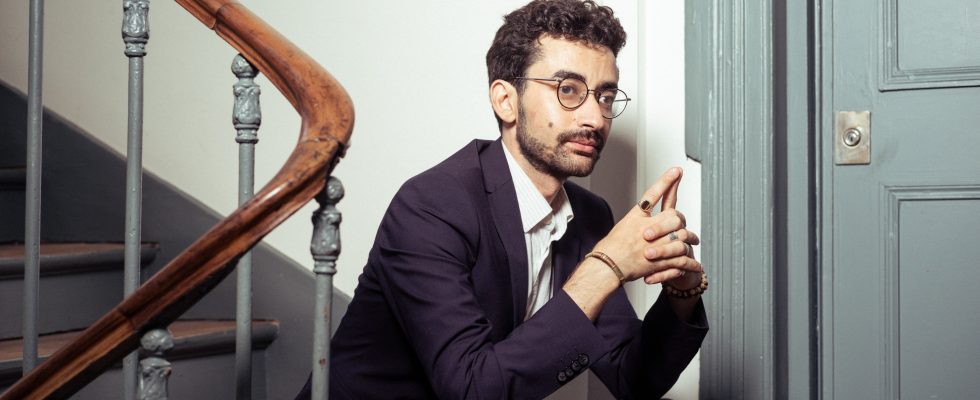The only criterion for evaluating the new immigration law is that of integration. This is the essential goal of any type of immigration, economic or political. So that the immigrant does not spend the rest of his life as an isolated stranger in his new territory. To achieve this integration, complicity must be created between him and the host country. In France, it is clear that a crisis exists between certain people of foreign origin and this country: foreigners living in poverty, neighborhoods separated from the Republic which are dominated by an Islamist discourse, undocumented workers, violence committed by illegal immigrants … According to the Ministry of the Interior, in 2022, 48% of those arrested for acts of delinquency in Paris, 55% in Marseille and 39% in Lyon were foreigners. In this context, the need for a new law that regularizes the situation of immigrants wishing to integrate and expels those who pose a problem has become an absolute priority.
While awaiting the decision of the Constitutional Council, the immigration law, adopted by Parliament on December 19, continues to divide the different political currents: for LFI, this text disfigures France, for the RN it is an “insufficient” victory. These statements simplify this law and judge it in a binary way based on ideologies and political objectives, but the reality is much more complicated.
Responsibility to this country
I arrived in France in 2012, fleeing the war in Syria. I received RSA and family allowances. A few months later, I obtained a ten-year residence permit, I spoke no word of French and I knew neither the history nor the laws of France! I was helped financially, but not to discover this country, culturally and historically. Officially, it therefore did not seem important to practice the language, nor to know France in order to accept the stay.
Ten years later, I obtained French nationality. It was very complicated at the administrative level and so simple in terms of knowledge about the Republic. Before the interview at the Paris police headquarters, I had prepared myself to be able to talk about the law of 1905, democracy, freedom of expression, de Gaule, Éluard, Jean Moulin or ‘André Malraux. But instead of tackling these fascinating subjects, I was forced to answer banal questions: “why do you want to be French?”, “what do you think of secularism?”…
New arrivals were thus helped to find a home, but not to promote France. Today, with the new law, the situation has been reversed. To obtain the residence permit, you must commit to respecting the principles of the Republic by signing a new contract (acceptance of freedom of expression and conscience, equality between women and men, the motto and symbols of the Republic…). In reality, signing a document will not change anyone’s affiliation with France. Respecting the values of the Republic is achieved by practicing them. But putting acceptance of France’s values as a condition for obtaining the residence permit offers a feeling of responsibility towards this country: we not only have rights, but also duties. You are also required to have a minimum level of French before receiving this card. All this is positive for integration. However, after obtaining this document, you must wait five years to obtain aid, including the APL. How can we ask a person to follow training or an internship, without helping them financially to do so?
Home selected
Immigrants are as diverse as the political camps that have clashed over this law. Kateb Yassine the Algerian, Marie Curie the Polish, Amin Maalouf the Lebanese… These people and thousands of others make up an essential part of this country. It is thanks to France that they managed to have a career and thanks to them that France flourished. Nothing brings them closer to sinister figures like Mohammed Merah or Abdoullakh Anzoro. This is how we must treat immigrants today: on the one hand, many of them are in an irregular situation and work in difficult, poorly paid jobs. They only want to work and continue their lives with dignity, which the new law allows, without being obliged to go through their employer to apply for a residence permit. Work is a good reason to regularize the immigrant’s situation. We must treat these people not according to prejudices or their origins, only their effort counts.
From this perspective, the liberal system, especially in its individualist version, is ideal for integration, it ensures the possibility of finding one’s place in society through one’s own efforts, without forgetting personal freedom and respect for private life. ensured by liberalism. Unlike the far left who want to welcome everyone even if they have to live in terrible conditions, and the far right who refuses them at all costs. The liberal system offers a selected welcome which values those who have the possibility of adapting to France.
Everything in this law that encourages immigrants to love their new country, its diverse culture, and to assimilate into its society is an advantage for them and for France. On the other hand, articles contrary to integration, such as the deposit required from students, only encourage separatism. If we do not evaluate this law from this point of view, we will remain in a political discourse of identity, far from the real interest of our country.
Since I arrived in this country, I have often heard the same phrase: “You are an opportunity for France”. Sorry, I’m not an opportunity for this country, nor a disaster. I am just a new Frenchman in love with my adopted homeland. My foreign origin does not diminish this love, but increases it.
* Writer and poet born in Damascus, Omar Youssef Souleimane participated in demonstrations against the regime of Bashar el-Assad, but, hunted by the secret services, had to flee Syria in 2012. Refugee in France, he published with Flammarion The Little Terrorist, The Last Syrian, A room in exile, and recently Being French.
.
